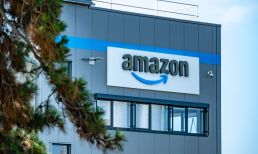Hundreds of retailers – both direct-to-consumer (DTC) and traditional – have lent their expertise and capital to helping the world recover from the devastation of the COVID-19 virus. At organic skincare company Nuria, that sense of community is built into its DNA. Yes, it’s contributing 100 percent of its April revenue, minus shipping costs, to Save the Children to help young at-risk girls curing the crisis. However, the contribution is the latest iteration of a two-pronged business model for the brand. The first is to make skincare products with healthy ingredients. The second is to give back to the girls who will become the women who eventually use that product.
“A lot of companies I know are valiantly giving to the fight, but we really wanted to show how passionately we felt about our commitment to the community, to education and to children,” said CMO Dawn Kidd. “So we said, let’s give our revenue, and then people will know this isn’t something we’re trying to do to get them interested in the brand. We’re genuinely trying make a difference.”
Founded by Naomi Furgiuele, Nuria (Spanish for “bright”) is a direct-to-consumer (DTC) brand built on a partnership with a program called She’s The First, whose mission is to “find, fund and support solutions that not only educate and empower girls, but also build up the communities where they are able to flourish.” The goal is to help girls become the first in their families to attend or graduate secondary school or higher. That mission has drawn the attention of several corporate partners in addition to Nuria. A portion of every Nuria order goes toward the nonprofit organization.
“We should all feel good about having everybody get an education,” Kidd noted. “It’s like the proverbial candle in the darkness – you have to be a candle to light the dark. We could do so much more for girls and education, and I hope we can lead that effort.”
On the more traditional CPG brand side, Nuria is aimed at the “clean beauty” market, which requires strict standards on ingredients in the EU as well as the U.S. Its products are vegan, cruelty-free and void of the chemical compounds in traditional products that can cause skin issues. That doesn’t make the brand unique in today’s market – but it does give the company a platform to take an international stance on science and education, and that’s where Nuria has built its marketing platform. The donations to Save The Children show how the altruistic model can pivot based on external events. Because Nuria can’t mass-market at the level of some other brands, Kidd and her team are confident that the connections to the education and care of young girls will resonate with their customer base.
“We have a broad strategy of always talking to our customer and communicating how deeply we want to deliver against her needs,” Kidd said. “Her needs might be evolving, but we’re still here to meet them. I think the element we see now is that the world is always changing. You have to be ready to pivot. So, for example, if we put together a back-to-school campaign, we might plan to be in certain stores, but we also need to be ready to lean on online sales exclusively. We don’t always know what the world will look like, but if we’re focused on our consumer and why we’re there for her, and then it comes down to marketing execution.”
Advertisement: Scroll to Continue
Kidd has managed global brands at Johnson & Johnson and Pfizer before joining Nuria. Her current marketing strategy is meeting the consumer online. Some of that strategy was derailed by the urgency of the COVID-19 crisis, but the brand also has online tutorials, skincare masterclasses and other content to help build a one-to-one relationship.
“It’s a great opportunity to reach out and have one-on-one conversations with consumers, and it’s an advantage to being a smaller DTC brand,” she pointed out. “This has been a great opportunity to be community-focused, get to know our consumer better and dial up that outreach, whether it’s through email or social or things like She’s The First. We want our consumers to have such as positive experience that she would tell friends, which will help us get the word out faster than we would have been able to.”
Kidd sees several ways that the current crisis could change the skincare business.
“As a result of this entire experience, I think we’ll see a greater comfort with online and virtual brands,” she said. “I also think that with people being at home and being unable to interact with others, they will see the value of self-care, both mentally and physically. You know, taking that time to do a face mask and give themselves 10 minutes of meditation and peace to mentally re-center. I think those activities that might not have been so valuable are going to seen as more important.”




